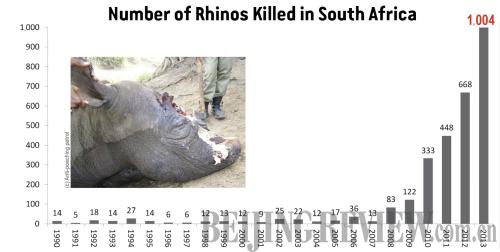|
Edward Grace, deputy chief of the U.S. Fish and Wildlife Service's Office of Law Enforcement, said that the operation sent a powerful message to poachers and smugglers across the globe that the world's endangered wildlife and plant resources are not theirs for the taking.
"Only as global partners can we protect the world's wildlife," Grace said.
Senior superintendent Uttam Kumar Karkee of the Nepal police said that this operation has proved itself an excellent model for fighting transnational crime.
Stopping trafficking
"This second Operation Cobra initiative shows what can be achieved when law enforcement authorities across range, transit and destination states work together in a coordinated manner. It also serves to highlight that intelligence-led operations are essential in the fight against transnational organized wildlife crime," Scanlon said.
Wildlife is the world's fourth most smuggled item, after drugs, counterfeit goods and human trafficking.
"Leaving aside timber and marine products, it is estimated that the annual value of the illegal wildlife trade is up to $20 billion and it has often been regarded as a high-profit low-risk crime—although this is starting to change as states recognize its negative economic, social and environmental impacts," Scanlon said at the International Wildlife Trafficking Symposium held in London on February 11-12.
According to China Daily, every year, about $1 billion worth of python skins are smuggled from Southeast Asia into Europe to meet the needs of the luxury goods industry.
At least 5 percent of the wild rhinos and elephants in Africa are killed for their horns and ivory every year, usually to meet demand in Asia. On top of this, wild animals are often smuggled out of their habitats to be kept as pets.
"Wildlife trafficking is now more organized, lucrative, widespread and dangerous than ever before. We need strong partnerships to fight the global problem of illicit wildlife trafficking," Wan said.
China is a major destination for ivory, rhino horns, pangolin scales, as well as tiger and leopard products. In China, ivory has traditionally been used in the carving of exquisite sculptures and ornaments. Rhino horns, pangolin scales and tiger bones are prized ingredients in traditional Chinese medicine. Leopard fur is loved for its attractive pattern.
To regulate trade in wildlife, China joined the CITES in 1981. The convention aims to prevent international trade from threatening the survival of wild flora and fauna.
Today, CITES regulates international trade in close to 35,000 species of plants and animals, including their products and derivatives according to the convention's website.
After signing the convention, China has made significant progress in its wildlife protection efforts. In 1988, China's Law on the Protection of Wildlife went into effect. That year, China made it illegal to kill or sell 256 species of wild animals.
Border patrol and customs officers actively clamp down on wildlife trafficking. In addition, the government has tackled the problem online.
During the more than 30 years since joining the convention, China has actively fulfilled its responsibilities and participated in international cooperation, and played an important role in wildlife protection and trade regulation, Scanlon said at the 16th meeting of the CITES' Conference of the Parties in Bangkok, Thailand, last March.
Zhang Jianlong, Director of the National Interagency CITES Enforcement Collaborative Group and Deputy Director of the State Forestry Administration, said that China will continue to cooperate with other countries to strengthen wildlife protection and fully fulfil its international obligations.
Email us at: wanghairong@bjreview.com

Participants of Operation Cobra II
Botswana, Brunei, Burundi, Cambodia, China including Hong Kong SAR, Congo, Ethiopia, Ghana, India, Indonesia, Kenya, Laos, Liberia, Malawi, Malaysia, Mozambique, Myanmar, Nepal, the Philippines, Singapore, South Africa, Thailand, Uganda, Tanzania, the United States, Viet Nam, Zambia and Zimbabwe (In alphabetical order)
(Source: CITES website) | 